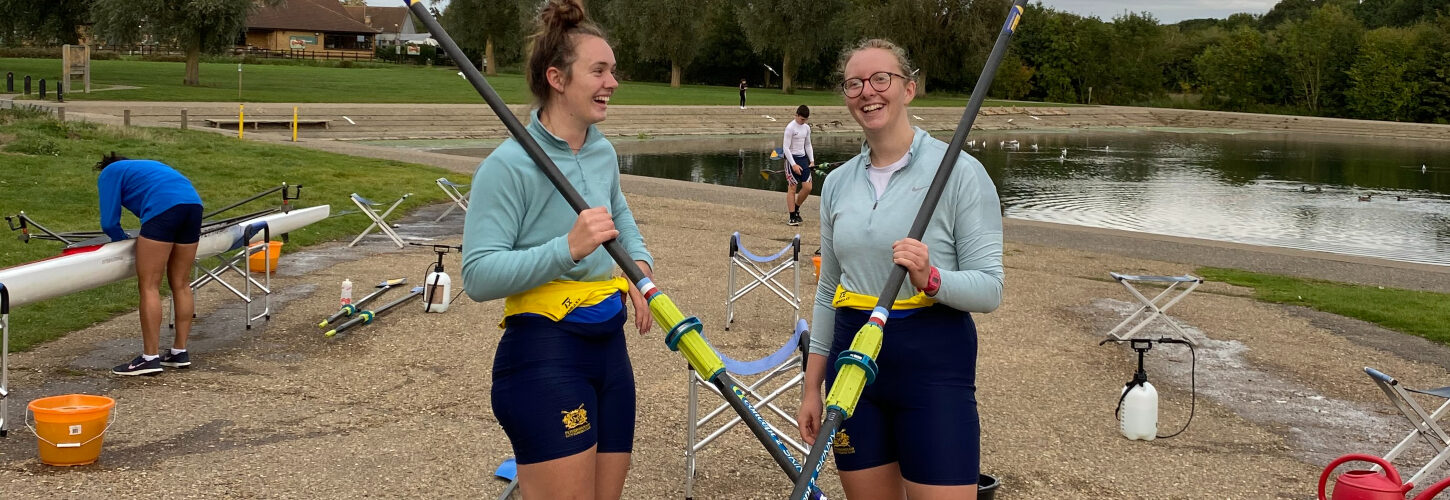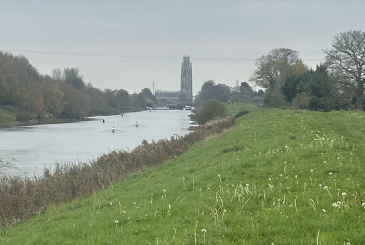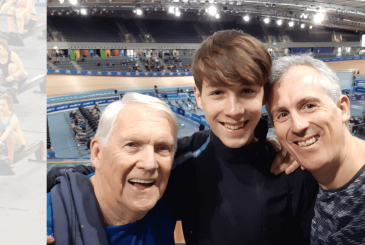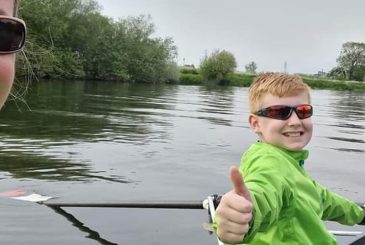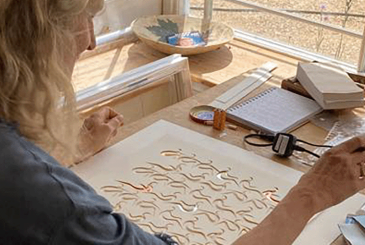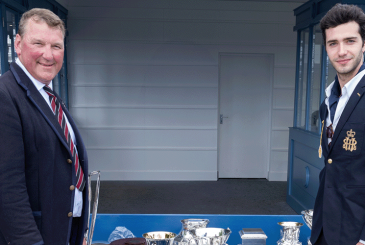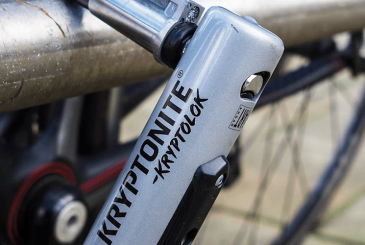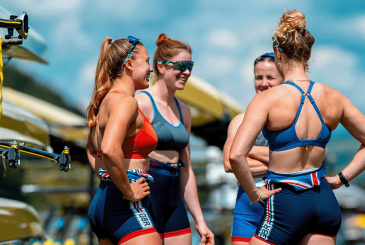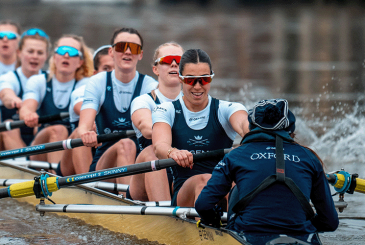Continuing our key worker series, Greta Balfour, a second-year paramedic science student at Anglia Ruskin University in Cambridge, talks about life with the East of England Ambulance Service on the front line of the pandemic
A rower with World Class Start, Greta also shares how she manages the demands of both her degree with an intensive training schedule.
Zoe Gullen: What led you to become a paramedic?
Greta Balfour: I’ve always been really interested in pre-hospital care and I love medical TV shows like Grey’s Anatomy. I wanted to do something that helped people.
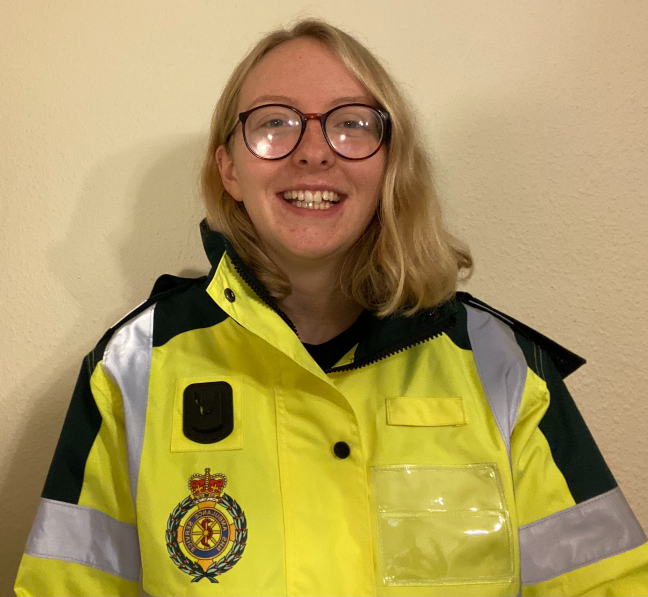
Zoe: You’ve just been on placement. Is your degree very practical?
Greta: Yes, it’s getting out on the ambulances with a crew, essentially just doing your role. I have a mentor who guides me and helps me out, but you’re pretty much learning the ropes on the job, putting the theory side into practice.
“If I’ve had a hard day, just coming home and doing an erg is quite a good way of processing it”
Zoe: How has Covid affected your work?
Greta: It’s had a big impact on people, especially the elderly. For a lot of the patients we go to, we’ll be the first people they’ve spoken to in months. It’s been a real eye-opener to realise that there are quite a lot of people who have just been on their own and haven’t been outside, which I’ve kind of taken for granted. I’ve still been able to get out and row and my life’s not changed that much, but for some people they’ve literally been housebound for most of the year.
I’ll wear my own clothes to work and get changed into my uniform there. I constantly have hand sanitiser on me and I do a Covid test twice a week, just to make sure. And when we do go to a Covid patient I’m very aware that they are Covid-positive and make sure I’ve got my PPE on correctly and take my time. If I start to display symptoms, I take that very seriously and isolate until I know otherwise.
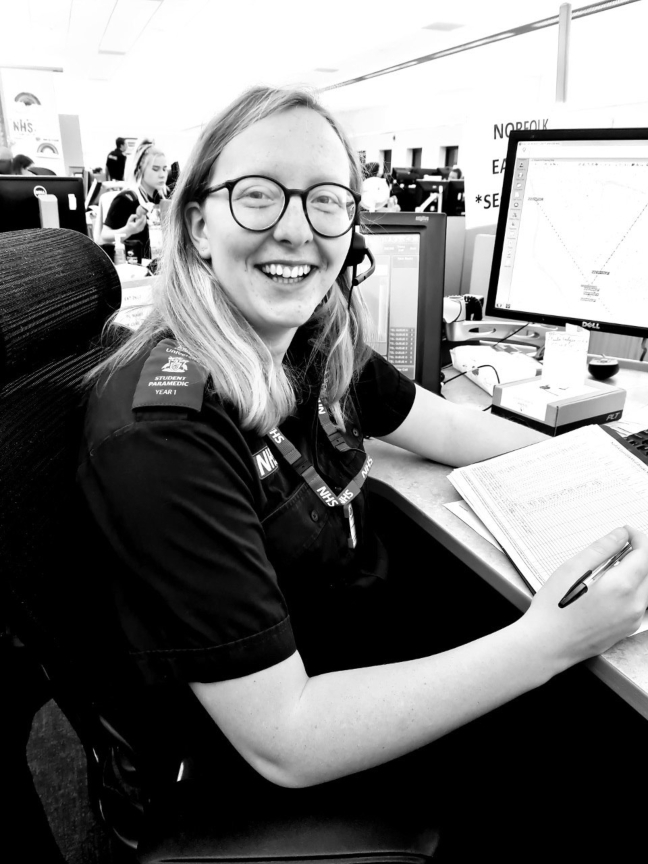
Zoe: What is your typical day like?
Greta: I do 6:30 to 6:30 for a day or night shift. If it’s a day shift, I’ll get up at about 5 and do a proprioception session before I go to work.
I get there and we prepare our ambulance for the day, make sure we’ve got everything, and then wait for a job to come in or they’ll send us to a standby point, which are spread out all over the city. But often we’ll be on route to a standby point and we’ll get a job.
After my shift I’ll come home and either do an erg or cross training, and then I’ll do an S&C session, and then I’ll just go to bed!
“Rowing’s a lot more interesting than swimming… you get to see the nice scenery”
I have to do quite a lot of forward planning and working out with my coach what days I can do what. With night shifts you then have a day of sleeping, so you sometimes lose a day.
If I’ve had a hard day, just coming home and doing an erg is quite a good way of processing it. I just think things through, and it chills me out.
Zoe: You joined World Class Start in 2017. How did you get involved?
Greta: I swam from about the age of seven and got to national level, but then I wanted a change. My swimming coach saw something about World Class Start. I signed up and did the testing, and that was it: I started rowing and I’ve loved every minute since. Though it’s strange spending more time on top of the water than in it!
Rowing’s a lot more interesting than swimming: you’re not just looking at a line going up and down, you get to see the nice scenery.
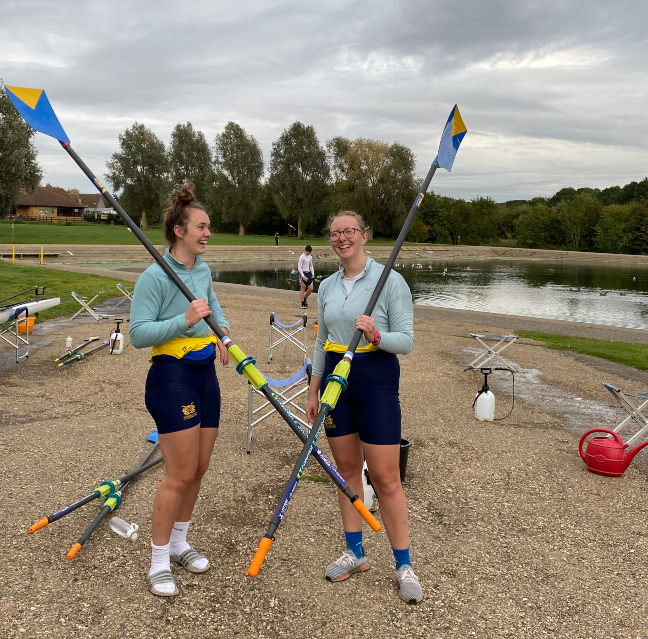
Zoe: You are based in Cambridge and the Start centre is in Peterborough. Do you do a lot of training on your own?
Greta: Before Covid I’d do the majority of my sessions at Peterborough but now I’ll erg and do weights at home. It’s cut out a lot of travel time, so I am finding it is better with working shifts. Because I have limited time now, in the time I do have I almost train harder than I was previously, because I’m trying to make the most of it.
We’ll set a time, normally at the weekend, and go on a Zoom call and do our ergs together, which was strange at first because you’re not really talking to each other, it was just loads of people on screen, erging, but it’s nice to know we’re all doing it at the same time. We’ll do yoga Zoom calls as well.
We have a group chat, so we all talk to each other about training and how things are going. Our coach has been really good; he always checks in on us every day to make sure we’re all right.
Zoe: What have you missed most about rowing this year?
Greta: I think this goes for everyone, that we all did a long winter’s training ready for the racing season and then it just didn’t happen, which can be quite hard to comprehend. You’ve just got to keep going and don’t have anything to look forward to. I really miss competition.
Zoe: And what are you most looking forward to in 2021?
Greta: Having group sessions again – I miss going for a group paddle – and getting back into racing. Hopefully the racing season will go ahead. I’m looking forward to it getting back to normal.
Look out for more experiences of key workers on British Rowing Plus over the next few days


